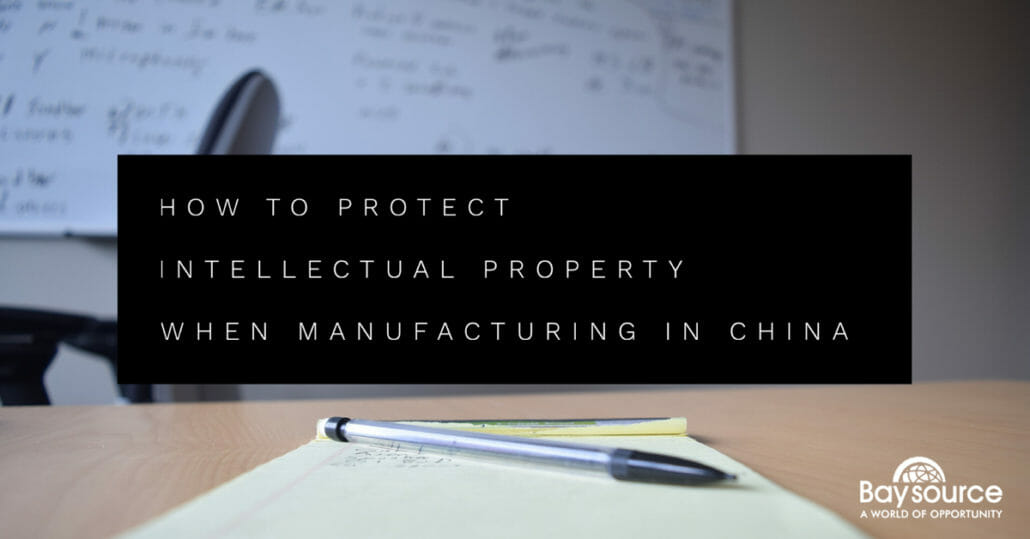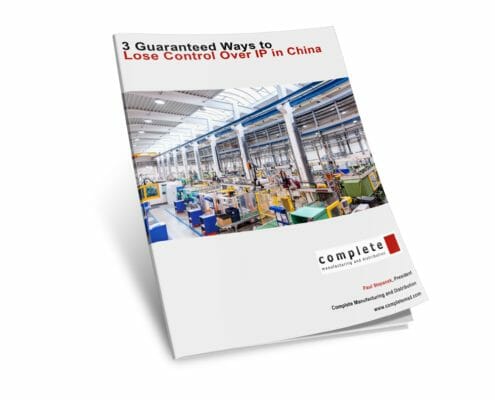
China offers a new world of opportunity for U.S. small businesses and startups. With lower labor costs, high-quality production, and an ever-growing consumer market, China is not only a strategic sourcing destination but also estimated to become the largest consumer market in the world. But, with great reward comes risks. Doing business in China can be very beneficial for some companies, but for others, it can cause problems, especially in the area of intellectual property rights.
The biggest question for most companies taking their technologies into China is how to protect intellectual property overseas. This is difficult for most analysts to answer, as the Chinese market is ever-changing and the legal steps to protecting IP are not always foolproof. Some contract manufacturers will work for multiple competitors, so the opportunity for IP and technology leakage is high. However, companies can cover their bases by following five rules:
Do Your Research
Choosing a contract manufacturer is no easy task, and shouldn’t be treated as such. Companies need to do thorough research and evaluate proposals carefully before signing any agreements. Ask for references from the manufacturers’ past clients. Those who have been in business for a while should have good track records, no IP violations, and references you can easily find.
Due Diligence
Research shouldn’t just be conducted by suppliers and manufacturers. Companies need to know what is expected of them legally in the countries they do business to ensure their IP is legally safe. Registering patents on products is a necessity in any country the product is manufactured, not just in the country where the company is based. Companies should conduct further research on other IP protections and loopholes in China. The more legal protections the client has, the less likely they are to have infringement.
Reviewing and Signing Contracts
Chinese law has more leniency for business than the U.S., which is both a positive aspect and a potential risk. Therefore, it is important for a business to protect themselves both through the legal system and in their business contracts. Reputable manufacturers will expect and uphold non-disclosure and non-compete agreements. Clients should bring up these terms early in the professional relationship to set clear expectations of what is and is not allowed to leave the manufacturing facility.
Segment Your Manufacturing
Even when all your legal bases are covered, your IP isn’t fully protected. You need to take measures operationally to protect your IP, such as segmenting your manufacturing to different plants. If the technologies are spread out, no one facility can gain too much information. This precaution may seem excessive, but some U.S. companies have had poor experiences with less-reputable manufacturers, and could not protect their IP despite legal protections and solid business contracts.
Scan the Market
The only way to know if your intellectual property has been exploited is to keep a watchful eye on the market. Visit your manufacturer to conduct regular audit ensuring your agreements are upheld and no similar products are being manufactured for their other clients. Scan the market for similar products in the Chinese market; less reputable manufacturers will produce new products more cheaply and sell them into markets in China without their clients’ consent.
Chose wisely what you want to manufacture overseas and what should be kept in your home territory. Depending on your industry and technologies used, it may be just too big a risk to manufacture entirely overseas. However, if you follow the five rules mentioned above, you have a much greater chance of protecting your IP and still gaining the benefits of overseas manufacturing.
Executive Briefing –
3 Guaranteed Ways to Lose Control Over IP in China
The Challenge
For decades, controlling IP in China has been a major concern. The running joke is that R&D in China means “Receive and Duplicate.” It’s never easy from half a world away, and remains a challenge even when suppliers are next door.
The Reality
Even with local knowledge and a good understanding of the language, supplier management and IP protection is never easy. It’s even more difficult if you are not on the ground in China.
Key Takeaways
This briefing summarizes three risky IP practices and strategies for protecting your company in the land of me-too producers.


Follow Us